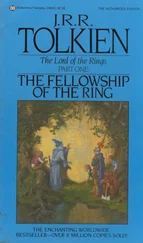Helge Fauskanger - J.R.R. Tolkien’s Lord’s prayer and Hail Mary in Quenya - Syntactical and Etymological Analysis
Здесь есть возможность читать онлайн «Helge Fauskanger - J.R.R. Tolkien’s Lord’s prayer and Hail Mary in Quenya - Syntactical and Etymological Analysis» весь текст электронной книги совершенно бесплатно (целиком полную версию без сокращений). В некоторых случаях можно слушать аудио, скачать через торрент в формате fb2 и присутствует краткое содержание. Жанр: Языкознание, на английском языке. Описание произведения, (предисловие) а так же отзывы посетителей доступны на портале библиотеки ЛибКат.
- Название:J.R.R. Tolkien’s Lord’s prayer and Hail Mary in Quenya: Syntactical and Etymological Analysis
- Автор:
- Жанр:
- Год:неизвестен
- ISBN:нет данных
- Рейтинг книги:5 / 5. Голосов: 1
-
Избранное:Добавить в избранное
- Отзывы:
-
Ваша оценка:
- 100
- 1
- 2
- 3
- 4
- 5
J.R.R. Tolkien’s Lord’s prayer and Hail Mary in Quenya: Syntactical and Etymological Analysis: краткое содержание, описание и аннотация
Предлагаем к чтению аннотацию, описание, краткое содержание или предисловие (зависит от того, что написал сам автор книги «J.R.R. Tolkien’s Lord’s prayer and Hail Mary in Quenya: Syntactical and Etymological Analysis»). Если вы не нашли необходимую информацию о книге — напишите в комментариях, мы постараемся отыскать её.
J.R.R. Tolkien’s Lord’s prayer and Hail Mary in Quenya: Syntactical and Etymological Analysis — читать онлайн бесплатно полную книгу (весь текст) целиком
Ниже представлен текст книги, разбитый по страницам. Система сохранения места последней прочитанной страницы, позволяет с удобством читать онлайн бесплатно книгу «J.R.R. Tolkien’s Lord’s prayer and Hail Mary in Quenya: Syntactical and Etymological Analysis», без необходимости каждый раз заново искать на чём Вы остановились. Поставьте закладку, и сможете в любой момент перейти на страницу, на которой закончили чтение.
Интервал:
Закладка:
Eruanno, noun in genitive: of grace , transparently a compound incorporating Eru God , the One (see above). The nominative could also be # Eruanno(since the genitive ending - ois "invisible" when added to words already ending in - o, cf. i·Kiryamo the Mariner’s in UT:8), but this would leave the final element of the compound obscure, since no word * annois known. The only other possible nominative is # Eruanna, which would be a meaningful word: several sources (e.g. the Silmarillion Appendix) give annaas the Quenya word for gift . In the Etymologies , LR:348, it is derived from a prepositional stem ana 1- to , towards , whence primitive anta- to present, give , a verb also found in Quenya and indeed occurring in the text before us (see the entry anta). Perhaps anna gift represents an old past participle * an-nâformed directly from the root and later used as a noun: that which is brought forward, presented, given . Whatever the precise etymology of anna, the compound * Eruannawould seem to denote grace perceived as God-gift , the gift of God . In the published corpus, the only other word for grace is lis( list-) from the early Qenya Lexicon (p. 54). This word was developed from a wholly different idea: the root meaning is said to be sweetness (p. 55; cf. lis- honey in the later Etymologies , LR:369, and lisse-miruvóreva of the sweet mead in Namárië in LotR). However, it is interesting to see that the Greek word kharis grace (related to the word kekharitômenê favoured one found in the Greek text of Hail Mary, cf. Luke 1:28) is seemingly equated with God’s "gift" in 2 Corinthians 9:14-15: "Their prayers for you, too, show how they are drawn to you on account of all the grace [a form of kharis] that God has given you. Thanks be to God for his inexpressible gift " (quoted from The Jerusalem Bible ). Perhaps it was this and similar Biblical passages that inspired # Eruannaas the Quenya word for grace .
Erumande, inflected noun: (as?) in heaven . As indicated in the Syntactical analysis above, it is not altogether certain what the nominative of this word may be. Since the nominative of cemende (as?) on earth is known to be cemen, one plausible assumption could be that the word before us is # Erumaninflected for the same (obscure) case. (This obviously cannot be equated with the Erumanof LR:356 s.v. ere-, which is a "desert N.E. of Valinor".) Yet this strange "locative" (?) ending could also be #- nde, simplified to #- dewhen added to a word ending in - n(like cemen); if so the nominative would be # Eruma. Both of these words can be assigned more or less plausible etymologies. # Erumancould incorporate "the Valarin element aman , man blessed, holy [that the Elves] learned from Oromë"; thus # Erumanwould identify "heaven" as the blessed and holy abode of the One (PM:357). It is also possible that # manmeans place , so that # Erumanis The Place of God : A word men place , spot occurs in Etym. (LR:372 s.v. men-), but one word seems to hint that Tolkien later changed it to # manor # mane(perhaps he was troubled by the homophony with the dative pronoun # men for us ): In SD:56, in an earlier version of the words spoken by Aragorn at his coronation, the word here or in this place appears as símane(evidently sí-mane this-place – cf. símenin Fíriel’s Song, see the entry síra). On the other hand, if we assume that the nominative is the shorter form # Eruma, this could incorporate the not uncommon ending - ma, primitive - mâ. While this ending is primarily "a suffix frequent in the names of implements" (WJ:416), which is clearly not appropriate here, it can also take on more general meanings. For instance, the noun # corma"ring" (attested in LotR as part of the compounds Cormarë Ring-day and cormacolindor Ring-bearers , the latter translated in Letters:308) is clearly to be referred to the stem kor- "round" (LR:365). Thus, a # cormais simply a *"round thing". Likewise, # Erumacould – presumably – be simply "a thing (actually a place) associated with God", which "heaven" is. As for the precise meaning or significance of # Eruma( n) (irrespective of its etymology), it would seem to denote the dwelling or presence of the One, evidently the "place" beyond and before Eä where the drama of the Music of the Ainur transpired. This would be "the fair regions that [Eru] had made for the Ainur", where afterwards "of the Ainur some abode still with Ilúvatar beyond the confines of the World" when others left and entered Eä (see the Ainulindalë ). Since Melkor also left, we must assume that this was indeed a place where the will of Eru reigned supreme and unchallenged ("thy will be done, on earth as it is in heaven"). Hence # Eruma( n) can be used to translate English heaven meaning the dwelling of the Deity, though unlike the English word it does not also refer to the sky above the earth; # Eruma( n) would be beyond our universe altogether. The Númenóreans, taught by the Elves, "did not conceive of the sky as a divine residence" (Letters:204) – which may explain why Tolkien did not use the standard Quenya translation of heaven , menel, in this prayer. Menelis just "the region of the stars" (RGEO:72), "the firmament" (SD:401), "the apparent dome in the sky" (MR:387), the "heavens" above the physical earth (see the Silmarillion Index, entry kemen , quoted under cemenabove). Meneldoes not refer to the dwelling of God.
esselya, noun with pronominal ending: thy name . The possessive ending - lya thy , your corresponds to the verbal ending - lyë thou (see elye). In the text before us, - lyaalso occurs in the words aranielya thy kingdom , indómelya thy will and mónalyo of thy womb , in the latter case with the genitive ending - oadded (regularly displacing the final - aof - lya). The ending - lyawas previously attested only in the word tielyanna upon your path (UT:22 cf. 51; this is tie-lya-nna path-your-upon ), and it corresponds to the ending - lyëfor you , thou (see - mmafor further discussion of the relationship between the pronominal suffixes for subject and possession). The noun that - lyais here suffixed to, esse name , is a well-known Quenya word, occurring in LotR, Appendix E as the (later) name of Tengwa No. 31. Essealso occurs in various forms and compounds in MR:214-217, reproducing a post-LotR source. It is also found in the Etymologies , where it is derived from a stem es- indicate , name (LR:356). The ancestral form is nowhere given but is probably * essê, the ending - êoften being used to derive nouns denoting intangibles or abstracts: examples include such primitive forms as rênê remembrance (PM:372, base given as ren-), slîwê sickness (LR:386 s.v. sliw-), or tûrê mastery , victory (LR:395 s.v. tur-). * Essêfrom es- is however not wholly parallel to these formations; instead of lengthening the stem-vowel (which would have produced primitive ** êsê> Quenya ** éze/ ére), the consonant s of the stem is lengthened. This may be compared to the derivation of the primitive noun lassê leaf from the base las- (in the Etymologies las 1-, LR:367; cf. also Letters:282). In the essay Quendi and Eldar , Tolkien explained that the "true relation" of the derivative lassêto its stem las- can be expressed as laS-ê (VT39:9), the capital S denoting a strengthened or lengthened consonant. Similarly, the relation of * essêto its stem es- may be described as * eS-ê . (Compare # massa bread from the stem mbas-; see massamma.)
Читать дальшеИнтервал:
Закладка:
Похожие книги на «J.R.R. Tolkien’s Lord’s prayer and Hail Mary in Quenya: Syntactical and Etymological Analysis»
Представляем Вашему вниманию похожие книги на «J.R.R. Tolkien’s Lord’s prayer and Hail Mary in Quenya: Syntactical and Etymological Analysis» списком для выбора. Мы отобрали схожую по названию и смыслу литературу в надежде предоставить читателям больше вариантов отыскать новые, интересные, ещё непрочитанные произведения.
Обсуждение, отзывы о книге «J.R.R. Tolkien’s Lord’s prayer and Hail Mary in Quenya: Syntactical and Etymological Analysis» и просто собственные мнения читателей. Оставьте ваши комментарии, напишите, что Вы думаете о произведении, его смысле или главных героях. Укажите что конкретно понравилось, а что нет, и почему Вы так считаете.












